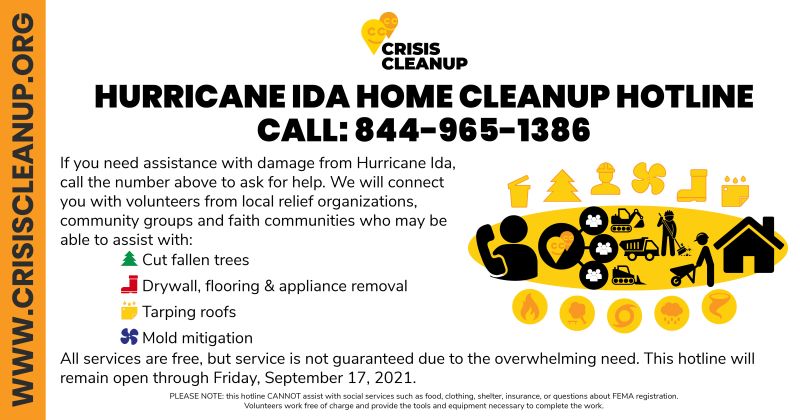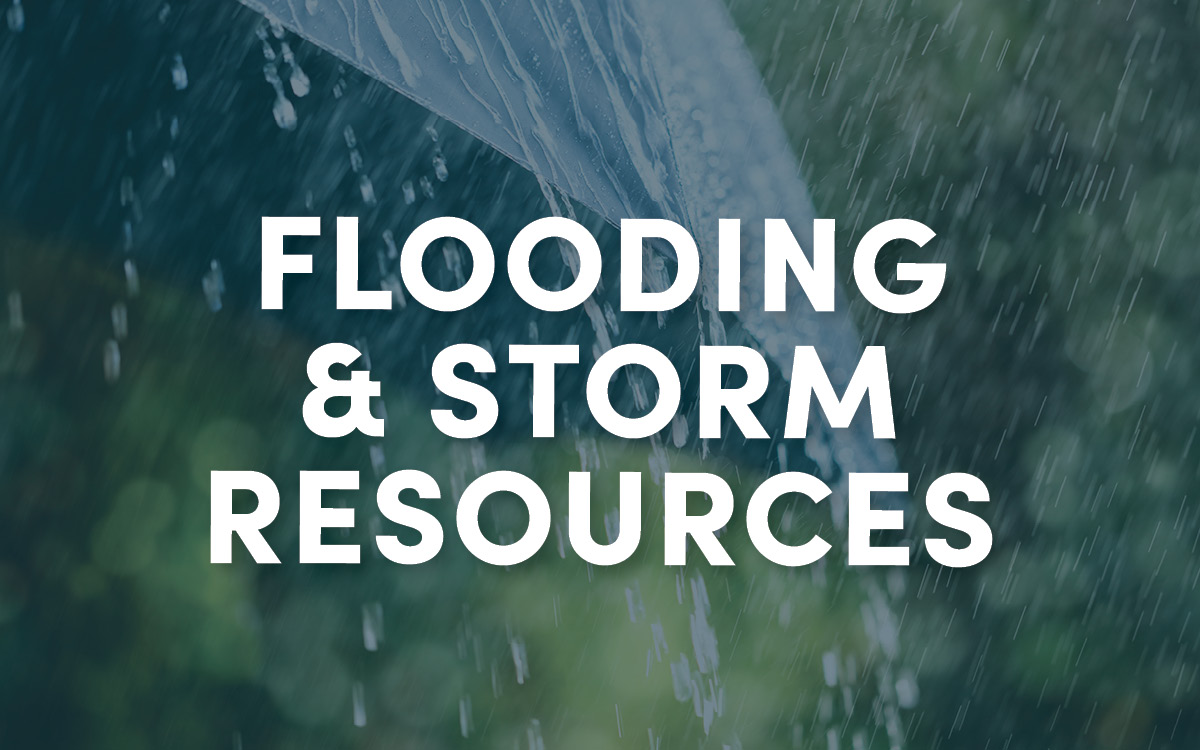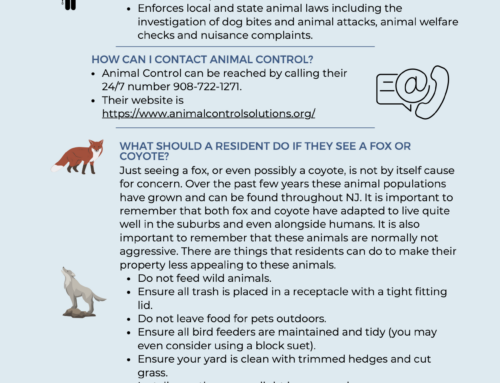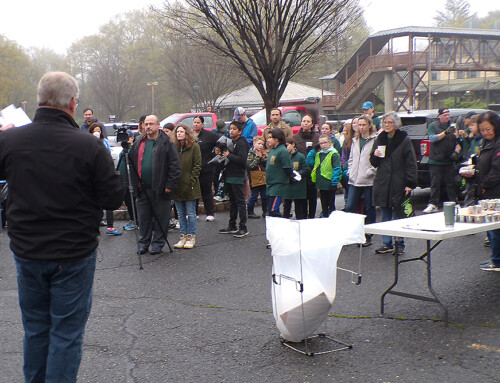New Jersey Survivors Affected by the Remnants of Hurricane Ida Can Apply for Possible FEMA Assistance-UNION COUNTY NOW INCLUDED!
Union County has now been added to the counties included in FEMA’s disaster designation!
New Jersey homeowners and renters affected by Hurricane Ida who live in counties that have recently been designated for Individual Assistance could be eligible for help from FEMA.
The designated counties are Bergen, Essex, Gloucester, Hudson, Hunterdon, Mercer, Middlesex, Passaic, Somerset and Union.
If you have homeowners or renters insurance, you should file a claim as soon as possible. By law, FEMA cannot duplicate benefits for losses covered by insurance. If you are uninsured or underinsured, you may be eligible for federal assistance.
The fastest and easiest way to apply is by visiting disasterassistance.gov/ or by downloading the FEMA App on the Apple App Store or the Google Play Store.
If it is not possible to apply online, call 800-621-3362 (TTY: 800-462-7585). The toll-free telephone lines operate from 6 a.m. to 10 p.m. CDT, seven days a week. Those who use a relay service such as a videophone, InnoCaption or CapTel should update FEMA with their specific number assigned to that service.
“FEMA’s mission here in New Jersey and around the country is to help people before, during and after disasters,” said Federal Coordinating Officer Patrick Cornbill. “Residents in Bergen, Gloucester, Hunterdon, Middlesex, Passaic, and Somerset counties have already begun registering for FEMA assistance and we encourage people in those counties to visit DisasterAssistance.gov to register.”
When you apply for assistance, have the following information readily available:
- A current phone number where you can be contacted
- Your address at the time of the disaster and the address where you are now staying
- Your Social Security number, if available
- A general list of damage and losses
- If insured, the policy number or the agent and/or the company name
As soon as it is safe to do so, start cleaning up. Take photos to document damage and begin cleanup and repairs to prevent further damage. Remember to keep receipts from all purchases related to the cleanup and repair.
Disaster assistance may include financial help for temporary lodging and home repairs along with other programs to assist families recover from the effects of the event.
Non-Designated County Residents
New Jersey has launched a data collection portal to gather data from impacted individuals outside of the six counties where FEMA has declared the Major Disaster Declaration. The state portal will record basic information including name, location, damages, and cost, and need from impacted residents and businesses. It is accessible at nj.gov/ida and damagenj-njoem.hub.arcgis.com
FEMA and the State continue to evaluate damage in other counties through the Preliminary Damage Assessment process and the state portal will ensure that all Ida damages across all counties in the State are evaluated for potential FEMA assistance.
Small Business Administration Disaster Loans
U.S. Small Business Administration (SBA) low-interest disaster loans are available for homeowners, renters, businesses of any size and most nonprofits. Similar to FEMA, SBA cannot duplicate benefits for losses covered by insurance.
For small businesses, those engaged in aquaculture and most nonprofits, up to $2 million is available for working capital needs even if there was no property damage, with a $2 million maximum loan for any combination of property damage and working capital needs.
For homeowners: up to $200,000 is available to repair or replace their primary residence. For homeowners and renters: up to $40,000 is available to replace personal property, including vehicles.
Businesses and residents can apply online at https://disasterloanassistance.sba.gov For questions and assistance completing an application, call 800-659-2955 or email DisasterCustomerService@sba.gov. SBA will answer specific questions about how a disaster loan may help each survivor recover from the disaster damage
For the latest information visit fema.gov/disaster/4614. Follow the FEMA Region 2 Twitter account at twitter.com/FEMAregion2
PSE&G Customer Safety Information
- Downed wires should always be considered “live.” Stay at least 30 feet away from downed lines, and don’t go near the pole or anything touching the line. Immediately contact PSE&G, at 1-800-436-PSEG (7734) via mobile app or our website, to report downed wires and dial 911 if an immediate hazard exists.
- Electric current passes easily through water, so stay away from downed power lines and electrical wires. Don’t drive over – and don’t stand near – downed power lines. Click here for flooding safety information.
- Downed lines can potentially be hidden in standing water. If you encounter large pools of standing water, stop, back up and choose another path.
- To prevent carbon monoxide poisoning, do not run any gasoline-powered generators in a garage or any other enclosed space.
- If you are on life-sustaining medical equipment, ensure that you alert PSE&G in advance and notify your local police and fire departments. For more information, visit https://link.edgepilot.com/s/3d49a22a/0-1I1_2MEE_ZuZUndtw8SA?u=http://www.pseg.com/life.
Stay Connected
- Download the PSE&G mobile app to report outages and receive information on restoration times, crew locations and more.
- Register for MyAlerts to receive text notifications at pseg.com/outagecenter.
- Report an outage and receive status updates by texting OUT to 4PSEG (47734). You can also report your outage through our app, website at pseg.com/myaccount or with your voice using the Amazon Alexa or Google Assistant[i]app on your smartphone.
- Follow PSE&G on PSEG on Facebook and Twitter @PSEGdelivers for updates before, during and after the storm.
- Visit PSE&G’s Outage Map for the latest in outage info, restoration times and crew locations across New Jersey at pseg.com/outagecenter.
- To report an outage by phone, call PSE&G at 1-800-436-PSEG (7734) or use our web chat feature at pseg.com/myaccount.
Crisis Cleanup Hotline
Crisis Cleanup is a non-profit volunteer organization created after Hurricane Sandy that seeks to connect storm victims with help.






